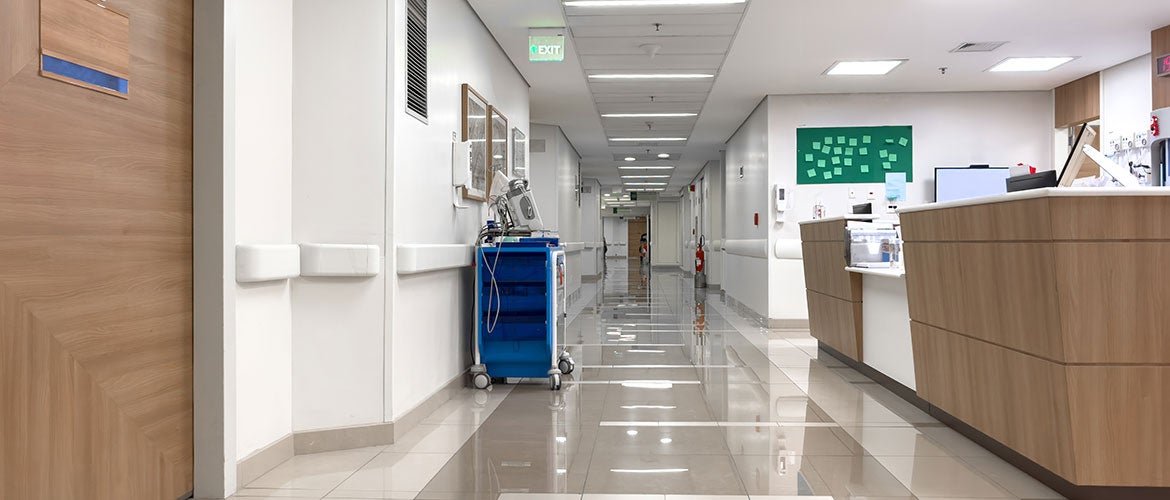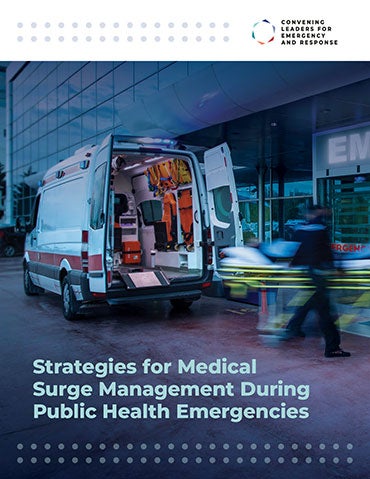About the Guide
“Strategies for Medical Surge Management During Public Health Emergencies” provides hospitals and health systems with field-informed approaches to anticipate and manage medical surges during natural and human-caused disasters and other large-scale public health emergencies.
Organized around the 4S framework — staffing, supply, space and systems — the guide offers actionable strategies to help teams maintain quality and continuity of care.
Health care leaders and teams can use this resource to strengthen their organization’s surge readiness, protect patients and care teams, and sustain critical operations when they are needed most.

Staffing
Effective surge staffing requires flexible plans that include cross-training teams, rapidly mobilizing additional personnel and supporting workforce resilience under prolonged stress. Proactive and flexible staffing strategies ensure hospitals and health systems can adapt quickly, sustain operations and protect patients and health care workers during a disaster or emergency.

Supply
Organizing and maintaining medical supplies, equipment and medications is important for hospitals and health systems to effectively manage a medical surge during a disaster or public health emergency. With adequate and timely access to critical supplies, hospitals can maintain patient quality and safety as demand for such supplies increases.

Space
Hospitals and health systems must quickly expand or adapt care areas to accommodate a sudden influx of patients while also prioritizing safety, infection control and operational efficiency. Effective surge response includes identifying spaces like recovery rooms or alternate care sites in advance so they can be repurposed during a public health emergency, and ensuring those spaces meet clinical standards.

Systems
Systems are organizational processes and frameworks, coordination mechanisms, surge policies, communication protocols and real-time data tracking used to manage a medical surge. Whether within an organization or across organizations, these systems support coordinated and efficient patient care, resource allocation and staff mobilization. Well-developed systems allow hospitals to work seamlessly with partners, balance patient loads and adapt rapidly as conditions evolve.
About CLEAR
Through the CLEAR — Convening Leaders for Emergency and Response — initiative, the AHA is dedicated to strengthening hospitals’ and health systems’ abilities to prepare for and respond to public health emergencies and disasters. The CLEAR initiative is a funded partnership between AHA’s Health Research & Educational Trust and the Administration for Strategic Preparedness and Response.
Presented as part of Cooperative Agreement HITEP210047, funded by the Department of Health and Human Services’ Administration for Strategic Preparedness and Response (ASPR). The Health Research & Educational Trust, an American Hospital Association 501(c)(3) nonprofit subsidiary, is a proud partner of this Cooperative Agreement. The contents of this webpage are solely the responsibility of the Health Research & Educational Trust and do not necessarily represent the official policies or views of the Department of Health and Human Services or of the Administration for Strategic Preparedness and Response. Further, any mention of trade names, commercial practices or organizations does not imply endorsement by the U.S. Government.


